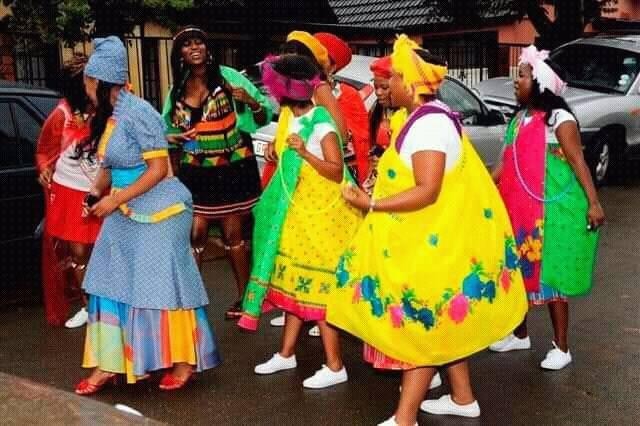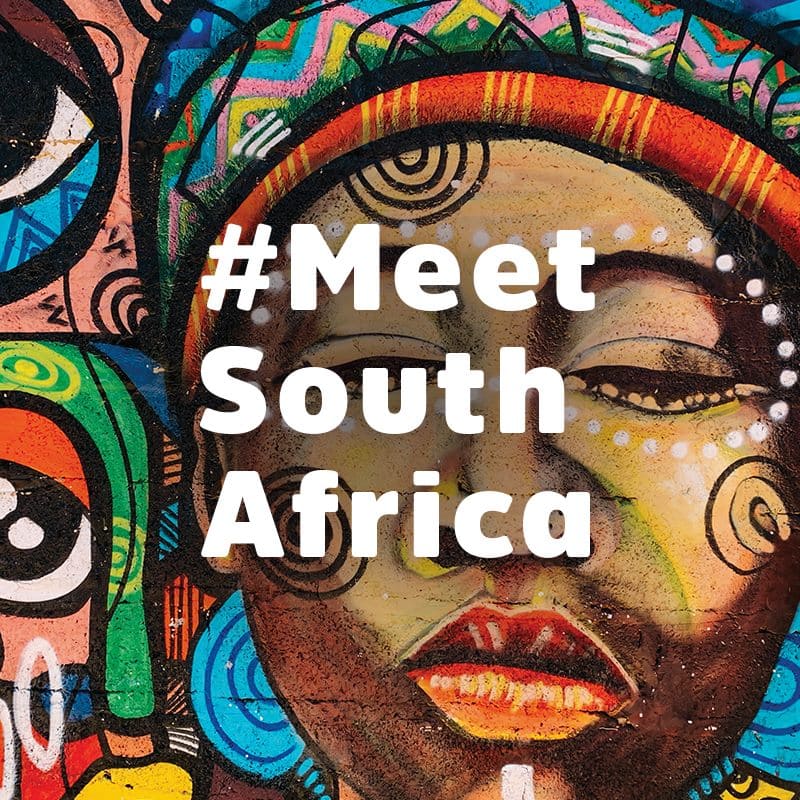The people of South African know how to embrace beliefs and origins in all aspects and diversities. The South African culture is unique due to its diversified way of living. This is ravishingly endowed nation, well fits the term "Rainbow Nation," as many people from different cultures and traditions live as one.

Various traditional ethnic groups have varying aspects of colour, dances, fabric, food, religious customs, and cultural festivals. On top of that, women play significant roles in passing the South African culture to their children as they bring them up. Tourists visiting the country enjoy the South African traditions portrayed by the different ethnic groups. Not only do tourists visit the present ethnic group communities but also the famous religious and historical sites in the country.
South African culture
So how many cultures in South Africa do you know? Well, the country boasts 11 official languages while eight others are not yet officially recognized. The country has many African tribes and cultures that were established by the new settlers in the region. The original occupants were the KhoiKhoi and San, who were later joined by the Bantu people. The European colonization also brought in different cultures to South Africa, and ways of living.
READ ALSO: Ndebele culture, food, patterns, traditional attire, customs, houses, arts and interesting facts
Traditional dances in South Africa
The combination of dance and music is an essential aspect of culture in most ethnic groups. Some of the celebrated South African traditional dances are described below.
1. Zulu dances
Eshowe is among the coolest places in Zululand, where people practice and celebrate their African tradition. Most Zulu dances take place during ceremonies and special occasions combined with rhythmic singing. The most critical part of these Zulu celebrations is the traditional attire worn by the men and women participating.
Zulu traditional dance requires the unmarried men to dance and then the married men and women may join. The married women utter a shrill (ukukikiza), while the young women (izintombi) dance. The young men are also not left behind as they will be clapping and beating the drums.
Ingoma (isizingili)
This performance requires the participants to dance without drums and to be accompanied by a chant. The ladies put on woollen skirts and remain bare on the upper part of the body. The rattles designed from seedpods on the ankles complement the attire. The Zulu people would exhibit the dance during weddings, battles, and when sharing traditional experiences.
Ingoma (isishameni)
The outstanding aspect of this performance is that the boys and girls are separated while making the dance moves accompanied by claps.
Indlamu
The Indlamu dance has resembling aspects from war dances done by warriors. Most Zulu people regard it as the root identity of their Zulu traditions. Additionally, it is one of the traditional dances in South Africa that is unaltered by Western diversity. It includes factors like the full costume worn by the participants, accurate timing, and perfect posture.
It allows men of any age to dance while putting on skins (amabeshu), rattles, shields, weapons, head rings, and other items. During the dance, the warriors show their muscular strength. Their moves are precise while fighting imaginary enemies. There is also the use of whistles and drums.
READ ALSO: Swazi culture, food, people, beliefs, traditional attire, wedding ceremony and facts
Imvunulo
One person usually performs the moves while a parade of traditional costumes is displayed. The dressing points to the gender, role, and position in the community. Ladies put on skirts made from a leather material to show the desire to get pregnant. The women also put on an apron received from her father on her wedding day. The work done on the beads is called isigege, which does not include red beadworks since they are usually for married ladies.
Isicathamiya
This dance is also known by other countries hence internationally recognized. It involves forming a straight line or a curve by the participants. The music usually narrates the current issues but still uses old rhythms provided by the soloist. Its performance takes place during weddings, with songs referred to as umbholoho.
2. Afrikaners dances
The Afrikaans culture and traditions are unique and diversified while still being supported by the young and old generations.
Sokkie
The Sokkie dance is among the most spectacular South African dance traditions. The dance originated from the Afrikaner Voortrekkers. It is a social ballroom dance.
READ ALSO: Venda culture, wedding, traditional clothing, food, language and facts
Important South African celebrations

Most cities in the country ensure that their citizens are ready to celebrate their traditional events. It is part of their rich South African culture and traditions to take part in these festivals. The famous conventional festivals include:
1. The Royal Reed Dance
This festival marks one of the celebrated Zulu holidays and festivals. It involves the women making and designing the beads and reeds for use during the event. Close to 10,000 Zulu maidens travel to the king’s place in KwaZulu-Natal Province. The reed items and beads will be used by the women while singing as the parade arrives at the palace.
2. The Cape Town International Jazz Festival
The famous Jazz Festival takes place in March and April, giving Cape Town one of the best musical experiences of all time. Both the local and international artists visit the two-day event.
3. Jacaranda Festival
One of the famous places in South Africa is Pretoria. It has many beautiful Jacaranda trees and sometimes is referred to as "The Jacaranda City." The epic event takes place in October when the trees are in full bloom, and the lakes in the area have a purplish hue.
4. Cape Town Minstrel Carnival
According to the Afrikaans culture and traditions, the festival is known as the Kaapse Klopse. It occurs during the first and second days of January and might continue to the rest of the week. Costumed minstrels form a parade in the streets of Cape Town while playing music.
5. The Arts Alive Festival
Art is a way of expressing life in colourful designs and artistic forms. The South African culture and customs promote its values through visual and performing arts. The ten-day event offers international performances of the Chinese puppet groups and the ballet troupes.
6. Oppikoppi Bushveld Festival
In August, Pretoria, Northam, and the northern part of Johannesburg become the places where the celebration takes place. Jazz artists, DJs, and comedians entertain a lot of people.
7. Knysna Oyster Festival
This event is home to more than 100 other small events that include cycle tours, eating contests, Knysna Forest Marathon, and others. It takes place in July at the Garden Route town. It holds close to 65,000 people ready to enjoy the event festivities.
READ ALSO: Tswana culture, people, food, language, traditions, ceremony, dance and traditional attire
What is the main culture in South Africa?
South Africa has many inhabitants with different beliefs and languages, there is one culture of South Africa whose dialect stands out to be popular. Out of the official 11 dialects, the Zulu language is the most spoken one at 22.7%. Additionally, it is the most popular dialect in the country. But it cannot be said that there is the main culture in South Africa. All of the cultures bring something special.
What are the different cultures in South Africa?
The KhoiKhoi and San first settled in the country. The Zulu culture is best known for its excellent beadwork and ferocious shield-bearing warriors. The Xhosa culture is known for its style of sophisticated clothing. The Ndebele people are well-known for their beautifully decorated homes using colourful geometrical designs. The Sotho culture is famous for its organized villages and marriages. Other ethnic groups in South Africa include the Shangaan, Swazi, Venda, Chinese, Cape Malay, European and the Indian culture in South Africa.
The South African culture has developed a unique fusion from the exposure to different people and ways of life. The younger generation seems to embrace some changes while keeping alive their traditions at the same time. Tourists get a chance to learn the vibrant South African heritage and ways of life.
READ ALSO: Zulu culture, food, traditional attire, wedding ceremony, dance and pictures
ncG1vNJzZmiaop6yp7jYZ5qoZqqWfHZ%2Fj3BuZqGdpbyzwMCnq2arn6rBqXnAn6mim5GjeqTBy62sq51dqb%2BisMitoKimo2KwprjEm6marJVjtbW5yw%3D%3D